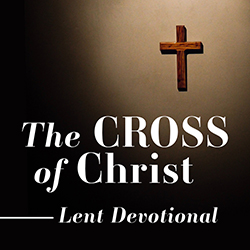Reading: The Cross of Christ, pg. 207-212
By this we know love, that he laid down his life for us, and we ought to lay down our lives for the brothers. 1 John 3.16
Beloved, let us love one another, for love is from God, and whoever loves has been born of God and knows God. Anyone who does not love does not know God, because God is love. In this the love of God was made manifest among us, that God sent his only Son into the world, so that we might live through him. In this is love, not that we have loved God but that he loved us and sent his Son to be the propitiation for our sins. 1 John 4.7-10
True love is God’s love, not ours, and he showed it among us (1 Jn 4.9) by sending his one and only Son into the world that he might die for us and we might live through him. The two words “live” (1 Jn 4.9) and “propitiation” (1 Jn 4.10) both betray the extremity of our need. Because we were sinners, we deserved to die under the righteous anger of God. But God sent his only Son, and in sending him came himself, to die that death and bear that wrath instead of us. It was an act of sheer, pure, unmerited love.
We learn from John, then, that although in this world our attention is constantly arrested by the problems of evil and pain which seem to contradict God’s love, we will be wise not to allow it to be deflected from the cross, where God’s love has been publicly and visibly made manifest. If the cross may be called a “tragedy,” it was tragedy that illumines all other tragedies. |Stott pg. 208
In what ways do people struggle to see God as loving? How are those struggles answered in the cross?
O love of God, how strong and true,
eternal and yet ever new,
uncomprehended and unbought,
beyond all knowledge and all thought!
O heav’nly love, how precious still,
in days of weariness and ill,
in nights of pain and helplessness,
to heal, to comfort, and to bless!
We read you best in him who came
bearing for us the cross of shame;
sent by the Father from on high,
our life to live, our death to die.
Horatius Bonar, 1861

